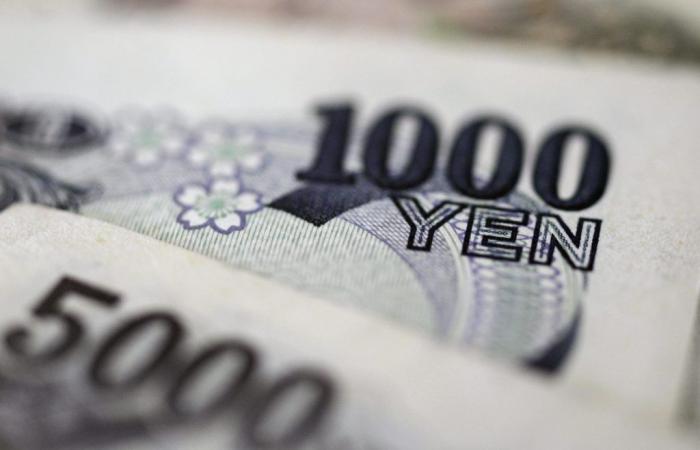Tokyo (EFE).- The yen surpassed the upper barrier of 160 units per dollar in the currency market for the first time in 37 and a half years, and 171 against the euro, a level that had not been seen since introduced the European currency in 1999.
The Japanese currency was quoted during the early hours of the morning in Tokyo in the range of 160.78 to 160.88 units per dollar, the lowest level since December 1986, while against the euro, it reached 171.79 units, the lowest level in its history.
The Japanese Deputy Minister of Finance and main person responsible for currency issues, Masato Kanda, reaffirmed in statements to the media the commitment of the country’s Executive to take “appropriate measures” and added that this rapid depreciation represents “a serious concern.”
Determined to defend the yen
“We do not have specific levels in mind, but we are determined to respond to rapid and disorderly movements led by speculators. In this context, the recent and rapid depreciation of the yen is a serious concern,” said Kanda, in statements reported by the local Kyodo agency.
This new depreciation of the yen came after rumors that the US Federal Reserve (Fed) could continue to delay its expected interest rate cut and perhaps make more rate increases to control the country’s inflation.
Last March, the Bank of Japan (BoJ) decided to raise benchmark short-term interest rates to 0.1%, the first such measure in 17 years.
However, the yen has continued to fall, given that the rate is still far from those applied by the main central banks, including the Fed.
A weak Japanese currency
The weakness of the Japanese currency has been associated not only with this policy divergence but with other risk factors, according to analysts, such as the progress in the conflict in the Middle East and the increase in the price of oil.
A weak yen benefits the overseas turnover of Japanese companies, which see their remittances inflated by repatriation and improves the competitiveness of their products, but it also has a negative impact on national accounts, by making imports more expensive in a country highly dependent on them.


